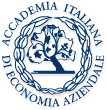Accounting Models between Shareholder and Stakeholder Capitalism: State of the art and New Research Perspectives
While accounting models increase efficiency and profitability, they also uncritically promote shareholder value maximization as the sole objective to be optimized. The failure to consider other legitimate interests has decreased employee share of wealth, led to the use of questionable social practices, and resulted in poor environmental stewardship. COVID-19 has served as a wakeup call and highlighted the inequities and social injustices of shareholder capitalism that privileges the interest of shareholders above all others. This paper discusses how accounting models – both financial and managerial – are complicit in supporting this ideology. Further, we discuss how the movement toward stakeholder capitalism can overcome this bias toward sole concern for shareholder disclosure and reporting. After discussing the major differences between the two competing models of capitalism and the role of accounting calculations in supporting these views, we show how management accounting research and practice can contribute toward enacting a more inclusive society by balancing the interests of all stakeholders.




